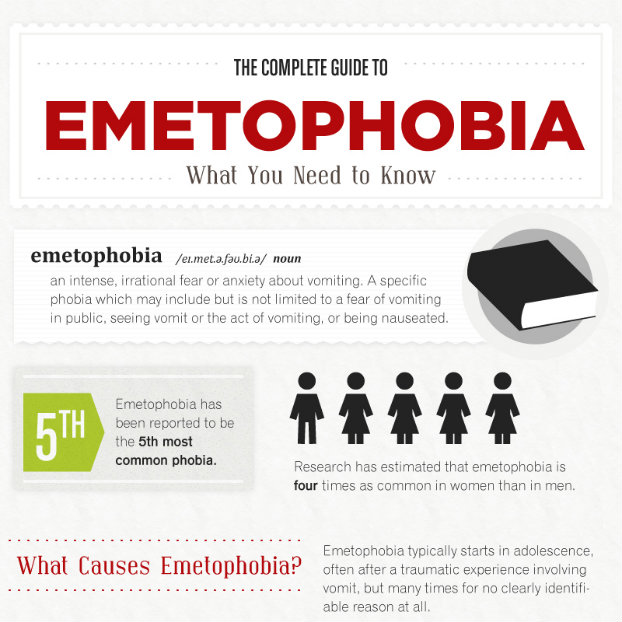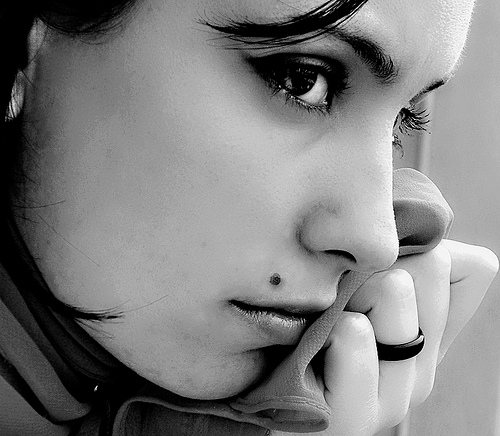 Emetophobia is an anxiety disorder in which someone is afraid of vomiting or seeing someone else get sick. It is not a common phobia, though most people have some degree of aversion to illness. Emetophobia is not widely studied or understood. This can make it difficult for some people to find reliable sources of information when seeking to learn more about emetophobia.
Emetophobia is an anxiety disorder in which someone is afraid of vomiting or seeing someone else get sick. It is not a common phobia, though most people have some degree of aversion to illness. Emetophobia is not widely studied or understood. This can make it difficult for some people to find reliable sources of information when seeking to learn more about emetophobia.
Similarly to other anxiety disorders, emetophobia is more common in women than in men. The phobia tends to begin during younger years, either in young childhood or in childhood. After the condition develops, most people do not seek treatment until they are adults, if they seek it at all. Children whose parents get them treated for emetophobia often see a full recovery.
People with emetophobia are constantly struggling with their fear. They worry excessively about becoming ill. This can lead them to avoid trying new foods or limit the amount of food they eat to an unhealthy extent. This seems to be more common in children with emetophobia, who may refuse to eat foods they do not consider “safe” foods that they know will not make them feel ill. Unfortunately, the foods children choose as “safe” foods are usually far from enough to provide a growing boy or girl with the necessary nutrients and minerals.
Some adults who have emetophobia may try to avoid crowds and certain places to reduce their perceived risk of being around someone who is sick. For example, many people with emetophobia try to stay away from small children, who are frequently sick. Others try not to go to places where illness is common, such as hospitals, schools or theme parks.
Treating emetophobia may seem difficult because so few people know what it is. However, emetophobia can be treated the same way other, more common phobias are cured. A licensed mental health worker can officially diagnose emetophobia then proceed to explain treatment options to the affected person. After this, a psychologist or psychiatrist can develop a treatment plan for the person with emetophobia.
Some of the information in this piece was taken from an article by Mark J. Boschen, David Veale, Nell Ellison, and Tamara Reddell. In their article, the authors discuss how a reliable and accurate test for emetophobia can be developed. They describe the symptoms and possible origins of emetophobia, and they also make brief mention of how emetophobia has been studied in the past.
Photo Credit: Helga Weber via Compfight cc





